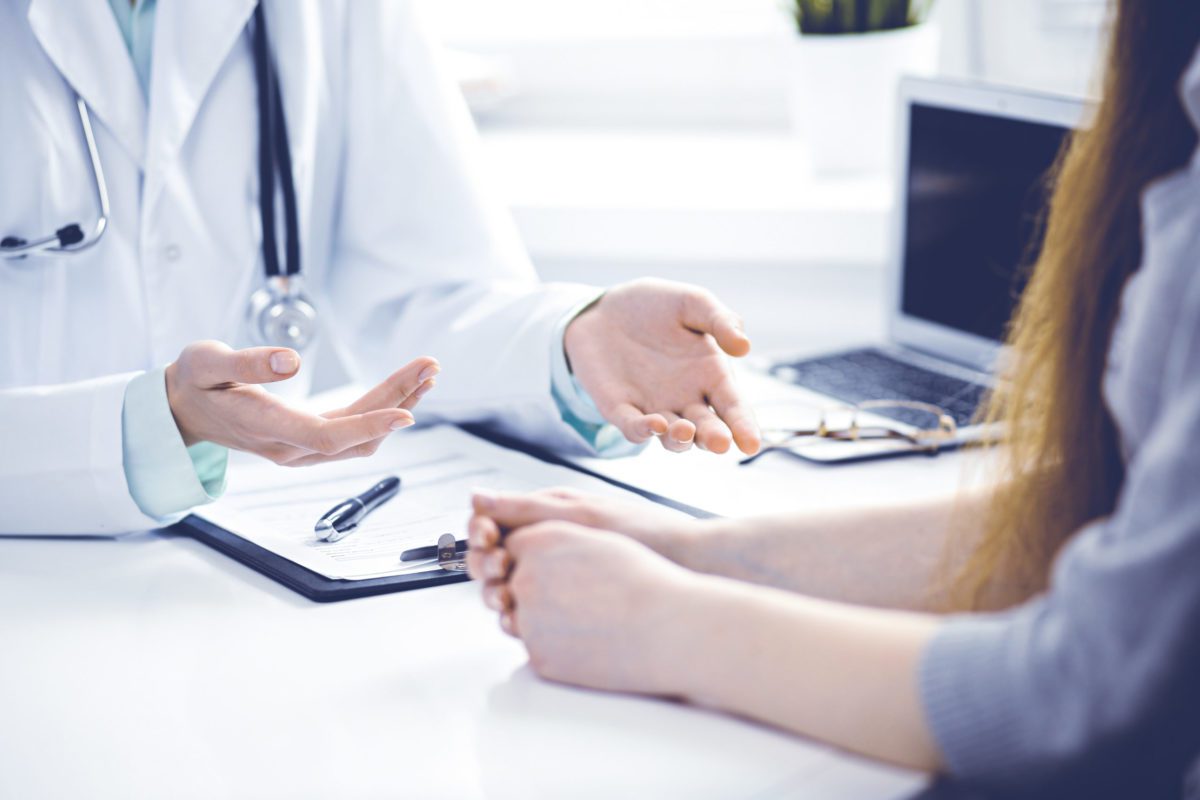What Are the Types of Depression?
Different types of depression can affect the severity and type of symptoms that someone experiences.
Questions About Treatment?
Our knowledgeable team is ready to discuss your situation and options. Your call is confidential with no obligation required.
What is Depression?
Depression is a mental health disorder that affects the way someone thinks and feels. Signs and symptoms of depression often consist of persistent sadness, loss of interest, trouble with performing day-to-day activities, and may also lead to someone feeling like life isn’t worth living.1
There are many different types of depression that someone could be struggling with. The severity of the disorder, along with the signs and symptoms that someone experiences, may vary for these different types of disorders. Fortunately, there are many resources available that can help treat depression in order to help alleviate symptoms.

What Depression Does to the Brain?
Depression can affect the brain in many ways. Common ways that depression affects the brain include:
- Brain Inflammation: Studies have shown that brain inflammation is usually present in those who struggle with major depressive disorder. Brain inflammation can hurt or kill brain cells, cause thinking problems, and can speed up brain aging.
- Brain Size: Studies have shown that the brain may actually shrink in some cases, and it may lose gray matter volume. Gray matter volume is important for controlling movement, memory, and emotions.
- Hippocampus: The hippocampus in the brain may lose gray matter volume with ongoing depression. Gray matter loss in the hippocampus can lead to increased stress and problems with learning and memory.
- Prefrontal Cortex: Depression can also impact the prefrontal cortex, which can lead to negative impacts on higher-level thinking and planning abilities.
Impact of Depression and How to Alleviate Symptoms
While ongoing depression can affect the brain in many ways, research has shown that proper treatment methods can help reverse the effects of depression on the brain. Therapies such as cognitive behavioral therapy (CBT) have been shown to promote positive changes in the brain that help your depression.2
What Are the Different Types of Depression?
Different types of depression can occur and may be the result of several different root causes as well. These different types can affect how severe depression symptoms are, along with the type of treatment that is required.
There are eight common types of depression. Understanding the types of depression is important during treatment in order to provide clients with the right care and resources for their needs.
Major Depressive Disorder (MDD)
Major depressive disorder, also known as clinical depression, is generally classified as a type of depression that has severe depression symptoms. These severe symptoms have to persist for at least two months in order for it to be classified as MDD. While major depressive disorder is serious and can greatly affect someone’s life and well-being, there are many treatment options that can help.
Psychotic Depression
Psychotic depression is a subtype of major depression that occurs when depressive symptoms are combined with psychosis. This includes hallucinations, delusions, or other ways that someone could lose touch with reality. If someone struggles with psychotic depression, it’s important that they get immediate help and support for these symptoms as they can have severe effects.3
Bipolar Disorder
Bipolar disorder is a mood disorder that involves mood swings that go from high to low. These are often referred to as manic and depressive mood swings. Manic episodes can cause an abnormally elevated mood, irritability, energy, or activity level. Manic episodes are often followed by depressive episodes which make someone feel very low, tired, or have a loss of interest in most activities.
Persistent Depressive Disorder (PDD)
Persistent depressive disorder is another subtype of major depression. PDD is characterized by experiencing major depressive symptoms for two years or more. PDD is serious, but it can be treated and managed with the right treatment program.
Atypical Depression
Atypical depression is a subtype of depression where someone’s mood can brighten in response to positive events, but otherwise still struggles with depressive symptoms. When someone struggles with major depression, they will generally feel low even when positive events are experienced.4
Postpartum Depression (PPD)
Postpartum depression occurs in women after they have given birth. Common signs of PPD are mood swings, anxiety, sadness, irritability, and feeling overwhelmed. Most symptoms generally last a week or two after giving birth but can persist for much longer. If you or a loved one are experiencing signs of PPD, you should contact your doctor and they can give you resources that will help you during this time.
Premenstrual Dysphoric Disorder (PMDD)
Premenstrual dysphoric disorder is characterized by irritability, depression, or anxiety a week or two before your period starts. There are medications and lifestyle changes that can be made to help with PMDD, so you should contact a medical professional if you are experiencing these symptoms.5
Seasonal Affective Disorder (SAD)
Seasonal affective disorder is characterized by depressive symptoms and feeling low during specific seasons or times of the year. Usually, people with SAD will experience it the most during the fall and winter and will see their depression improve during the spring and summer, although this isn’t always the case. There are treatment options that can help manage seasonal depression when it occurs.
Major Causes and Risk Factors
Depression can be caused by several different factors. Understanding the root cause of depression can help professionals provide the best level of care for clients. Common causes of depression are:
- Genetics
- Personality type
- Abuse
- Conflict
- Genetics
- Death or loss
- Medications

How Depression is Diagnosed
If you are seeking depression treatment, the first step will likely be an official diagnosis from a medical professional. Depression can be diagnosed in different ways, but some of the most common ways of diagnosis include:
Laboratory Tests
Laboratory tests can be conducted to determine if someone is struggling with depression due to a physical illness or health issues. Common health issues that can cause depression are thyroid problems, kidney and liver issues, blood glucose levels, cholesterol levels, and deficiencies in calcium, magnesium, and vitamin B.
Talking with the Client
Clinical or major depression can often be diagnosed by talking with the client and learning about their mental health symptoms, how long they have persisted for, and how they impact day-to-day life for them. Medical professionals will often use the DSM-5 criteria for diagnosing major depression. If someone meets five of the criteria in the DSM-5 and has been struggling for more than two weeks, they will be diagnosed with depression.6
Physical Examination
Physical examinations may also be used during depression diagnosis to find out if a client is struggling with physical health issues that are causing depression symptoms to occur.
Natural Depression Treatments
For those who struggle with less severe types of depressive disorders, or who want to get additional benefits along with a treatment program for depression, there are some natural depression treatments that can help. These include:
- Eating healthy
- Exercising regularly
- Challenging negative thoughts
- Partaking in fun activities
- Avoiding drugs
Get Professional Treatment for Depression at Great Oaks Recovery Center
If you or someone you know is looking to get treatment for depression, Great Oaks Recovery Center can help. The knowledgeable treatment professionals at Great Oaks know how to properly diagnose the different types of depression to provide you with the most successful treatment program.
Working through a treatment program for depression at Great Oaks will provide you with all the resources you need to improve your mental well-being and achieve long-term success. Contact us for more information about how we can help you.
Resources
- https://www.mayoclinic.org/diseases-conditions/depression/symptoms-causes/syc-20356007
- https://www.mayoclinic.org/diseases-conditions/atypical-depression/symptoms-causes/syc-20369747
- https://www.womenshealth.gov/menstrual-cycle/premenstrual-syndrome/premenstrual-dysphoric-disorder-pmdd
- https://www.psycom.net/depression/major-depressive-disorder/dsm-5-depression-criteria
Questions About Treatment?
Our knowledgeable team is ready to discuss your situation and options. Your call is confidential with no obligation required.

